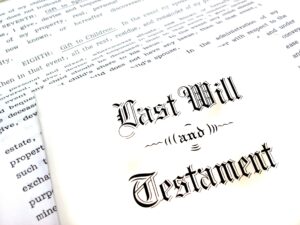Estate Planning: Essential Advice for Boomers and Gen X

In an era where change is the only constant, estate planning becomes a crucial endeavor for Baby Boomers and Generation X. This demographic, often caught between the responsibilities of aging parents and growing children, faces unique challenges that make estate planning not just a priority but a necessity. As they navigate through significant life transitions, from peak career years to retirement, securing their financial legacy and ensuring the well-being of their heirs is paramount. Here’s some advice for these generations, including ten essential estate planning tips tailored specifically for Boomers and Gen X, aiming to demystify the process and highlight its critical role in safeguarding futures.
1. Embrace the Estate Planning Journey

Estate planning is more than a legal task; it’s a journey that reflects your life’s work, values, and wishes for your loved ones. Beginning this journey early provides ample time to consider your options, consult with professionals, and make informed decisions. It’s about taking control of your legacy and ensuring your estate is managed according to your desires.
2. Craft a Comprehensive Will

A will is the foundation of your estate plan, detailing your ideal distribution of any assets. It’s also an opportunity to appoint guardians for minor children, ensuring they’re cared for by trusted individuals. Without a will, your estate may fall into the hands of state laws, which might not align with your personal wishes.
3. Explore the Benefits of Trusts

Trusts are versatile tools that offer benefits beyond what a will can provide. They can help manage and protect assets, reduce estate taxes, and ensure that your wealth serves your heirs according to your specific instructions, potentially over multiple generations.
4. Digital Legacy Planning

In the digital era, estate planning extends to online assets. Digital photos, social media accounts, and email correspondences are part of your digital footprint. Planning for these assets involves deciding their fate and providing access instructions to your digital executor.
5. Selecting Executors and Trustees

The role of executors and trustees is pivotal in estate planning. These individuals or institutions will carry out your estate plan and manage trusts. Choosing someone who is not only trustworthy but also has the capacity and willingness to take on these responsibilities is crucial.
6. Advance Directives and Powers of Attorney

Advance healthcare directives and powers of attorney are critical in preparing for potential incapacity. These documents ensure that your personal and financial affairs can be managed according to your preferences, even if you’re unable to make decisions yourself.
7. Update Beneficiary Designations

Assets like life insurance policies and retirement accounts often bypass the will and go directly to named beneficiaries. Regularly reviewing and updating these designations ensures that they reflect your current wishes and are consistent with your overall estate plan.
8. Incorporate Life Insurance

Life insurance can play a strategic role in estate planning, providing immediate funds to your beneficiaries, covering estate taxes, or even creating a legacy for future generations or charitable causes. It can also serve as a financial safety net, ensuring that any debts or final expenses are taken care of without burdening your estate or heirs.
9. Tax Planning Strategies

Effective estate planning involves strategic tax planning. Understanding potential estate taxes and exploring avenues to minimize them can maximize the wealth passed on to your heirs. Strategies might include gifting, establishing charitable trusts, or leveraging life insurance policies.
10. Ongoing Review and Adaptation

An effective estate plan is dynamic, evolving with your life’s changes. Regular reviews—at least every five years or after significant life events—ensure your estate plan remains aligned with your current situation and wishes. Additionally, staying informed about changes in laws and regulations that could impact your estate plan is crucial for its continued effectiveness.
Why Estate Planning Is Essential for Boomers and Gen X

For Baby Boomers and Generation X, the complexities of estate planning mirror the complexities of the lives they’ve led and the legacies they wish to leave behind. It’s a process that demands thoughtful consideration, careful planning, and regular revisiting. By adhering to these ten essential tips, individuals from these generations can navigate the intricacies of estate planning, ensuring that their legacies are preserved and their loved ones are protected. This isn’t just about financial assets; it’s about making choices today that reflect your values and wishes, providing peace of mind for both you and your heirs for years to come.
Read More:
10 Smart Estate Planning Steps to Take Before Retirement
Mastering the Art of Saving Money – Strategies for Financial Success